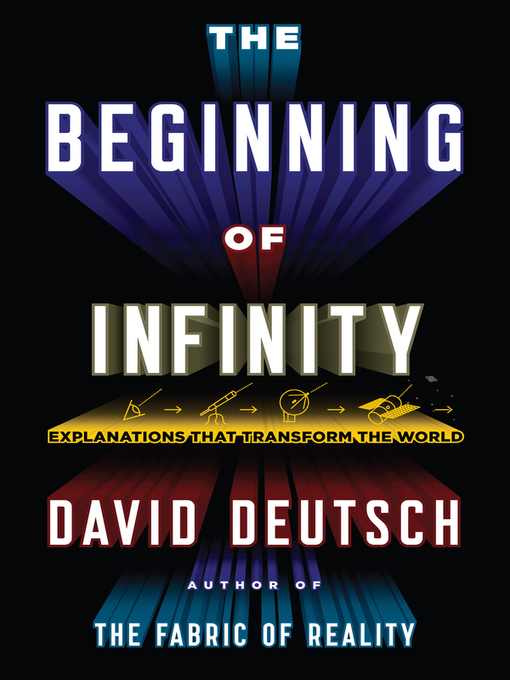
The Beginning of Infinity
Explanations That Transform the World
کتاب های مرتبط
- اطلاعات
- نقد و بررسی
- دیدگاه کاربران
نقد و بررسی

Starred review from June 1, 2011
A philosophical exploration of progress, surprisingly lucid and thought-provoking.
Deutsch (Physics/Oxford Univ.; The Fabric of Reality, 1998) asserts that until a few centuries ago, all cultures assumed everything worth knowing was known. Discoveries occurred (fire, tools, iron, gunpowder) but so rarely that no one thought the world could improve—until the scientific revolution in 17th-century Europe. Since then, new knowledge and discoveries have occurred at a steadily increasing rate with the sky being the limit (the "infinity" in the title). What changed? Deutsch maintains that this was part of a wider movement—the Enlightenment—which revolutionized other fields including moral and political philosophy. Its essence was rejecting authority in regard to knowledge, replacing it—not with another authority, but with a tradition of criticism. This simply means that scientists seek good explanations. A good explanation is hard to vary but does its job. Thus, Newton's laws worked beautifully for centuries; Einstein's relativity worked better but didn't alter it greatly. A bad explanation changes easily. Every prescientific culture had an explanation for human origins, the cause of disease or how the sun shines. All were different and wrong. Both skeptical and optimistic, Deutsch devotes ingenious chapters to refuting ideas (empiricism, induction, holism) and philosophies (positivism, most modernism, post-modernism) that limit what we can learn. Today's fashionable no-nos include explaining human consciousness or building an intelligent computer, but putting these off-limits is to believe in magic.
Scientists will eventually understand every phenomenon that obeys the laws of the universe, writes the author in this provocative, imaginative investigation of human genius.
(COPYRIGHT (2011) KIRKUS REVIEWS/NIELSEN BUSINESS MEDIA, INC. ALL RIGHTS RESERVED.)

June 1, 2011
Deutsch (Fellow, Royal Society; physics, Univ. of Oxford, UK; The Fabric of Reality) provides a comprehensive discussion of the larger concepts in science and everyday life. Picking up where Fabric ended, Deutsch expands his views on the deepest strands of discussion on evolution, quantum physics, knowledge, and computation to the broader concept of the multiverse. He does this by examining a variety of concepts including creativity, optimism, choice, and the evolution of culture to show that any topic is within the reach of reason. While Deutsch's book is lengthy, he convinces readers of the existence of the multiverse and how it can be described in the chosen contexts. VERDICT Comparable recent works include John Gribbin's In Search of the Multiverse, Steven Manly's Visions of the Multiverse, and Bernard Carr's Universe or Multitverse? for those interested in learning more about the basics of the discussion and current beliefs in the existence of the multiverse. Recommended for readers in science, philosophy, and physics.--Elizabeth Brown, Binghamton Univ. Libs., NY
Copyright 2011 Library Journal, LLC Used with permission.

June 1, 2011
Famous for his devotion to progress, Whig historian Thomas Macaulay looks timid compared to Deutsch. For Deutsch dares to extend the motif of progress from the very dawnings of human civilization, when ancient Babylonians first created a positional system of numbers, into an imagined future, when humans will upload their personalities into computers and technologically harness dark energy to generate a neverending cascade of new knowledge. Deutsch draws the inspiration for this exhilarating ride from a stream of revolutionary ideas, each explaining the world, man, and the cosmos in exciting new ways, yet each also provoking criticism and correction, thereby incubating the next idea in the grand chain. To be sure, readers may find Deutsch's argument for progress most compelling when he is charting human enterprises with transparent objectives (e.g., mathematics, a discipline revolutionized by theories that dispelled ancient fears of infinity). When he turns to aesthetics, philosophy, and politics, Deutsch brushes aside dark ambiguities that would delay his frenetic march. Audacious theorizing that swallows the universe whole!(Reprinted with permission of Booklist, copyright 2011, American Library Association.)

























دیدگاه کاربران